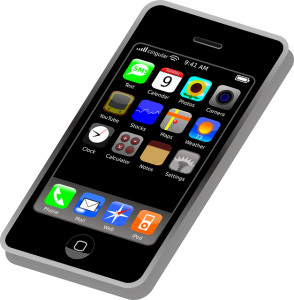From NPR: When cold snaps and blizzards shutter schools, kids miss more than their daily lessons. Some miss out on the day’s nutritious meal as well.
Blue and I talked about this when the metro area shut down two weeks ago. Some folks were home when horrendous traffic and inclement weather collided in Atlanta, but thousands of others ended up stuck in the worst jam they’ve ever experienced.
People slept in their cars or abandoned them and hoofed it to nearby friends, restaurants and stores. But there were hundreds of students who had no such options – instead, they ended up at school over night when their buses were unable to maneuver the slick hills home.
For many parents, this may have been a nightmare. Many, but perhaps not all. For a few, knowing their child is at school with access to heat, running water and food, might be a comfort.
Over half of Georgia’s students live in poverty. I was a classroom teacher in what was then a middle class section of metro Atlanta. Even so, there were students who couldn’t always bathe at home and used makeshift facilities at the school, students who would’ve been cold without the socks, blankets and coats donated, or who were hungry but for free breakfast and lunch. We were never quite sure about their dinner. This was in the early 2000s and the poverty rate has increased since then.
So here we are, a mere two weeks away from the last winter storm, and kids are once again out for several days in a row. Parents with the resources to stockpile groceries did so, as evidenced by the numerous pictures tweeted from throughout the metro area earlier in the week. But still we wondered: What about parents who can’t afford take off work and are still expected to go? What about those who can’t stock up on food?
Summer Lunch
Hunger isn’t relegated to winter. When school is out for the summer, many students go hungry without community support. Growing up, I spent a good portion of my summer break in Savannah. In the afternoons, a truck would pull up to the park across from my grandmother’s house, and a throng of kids would crowd around. What are they doing? I remember asking once. Getting lunch, she explained. Grandma didn’t elaborate aside from explaining it was a special program and we already had lunch here. But given what I now know about some of the demographics of the area, I wonder if it was a free lunch program.
As The Washington Post has reported, one program in Tennessee retrofitted a bus carrying sack lunches and delivered free meals to kids in impoverished areas.
With Georgia’s slick, hilly roads, and kids who simply don’t have the wardrobe to brave the elements, we understand why schools and businesses close. But those in other quarters do wonder if keeping schools open isn’t the better response:
When schools close because of extreme cold, especially in areas where many families struggle to pay for heat as well, Alexander wonders whether closing schools is the best way to go.
“It seems to me the best place to be is in school,” she says. “At least we can get the kids a hot meal.”
Read the NPR article here.
 Sherri Graslie reports one way to clear the mental clutter is by putting down your smartphone. But what happens when the smartphone is out of your hands? That’s when the deliberateness I mentioned above comes into play. Will you spend the time on another device, or will you engage with the world differently?
Sherri Graslie reports one way to clear the mental clutter is by putting down your smartphone. But what happens when the smartphone is out of your hands? That’s when the deliberateness I mentioned above comes into play. Will you spend the time on another device, or will you engage with the world differently?